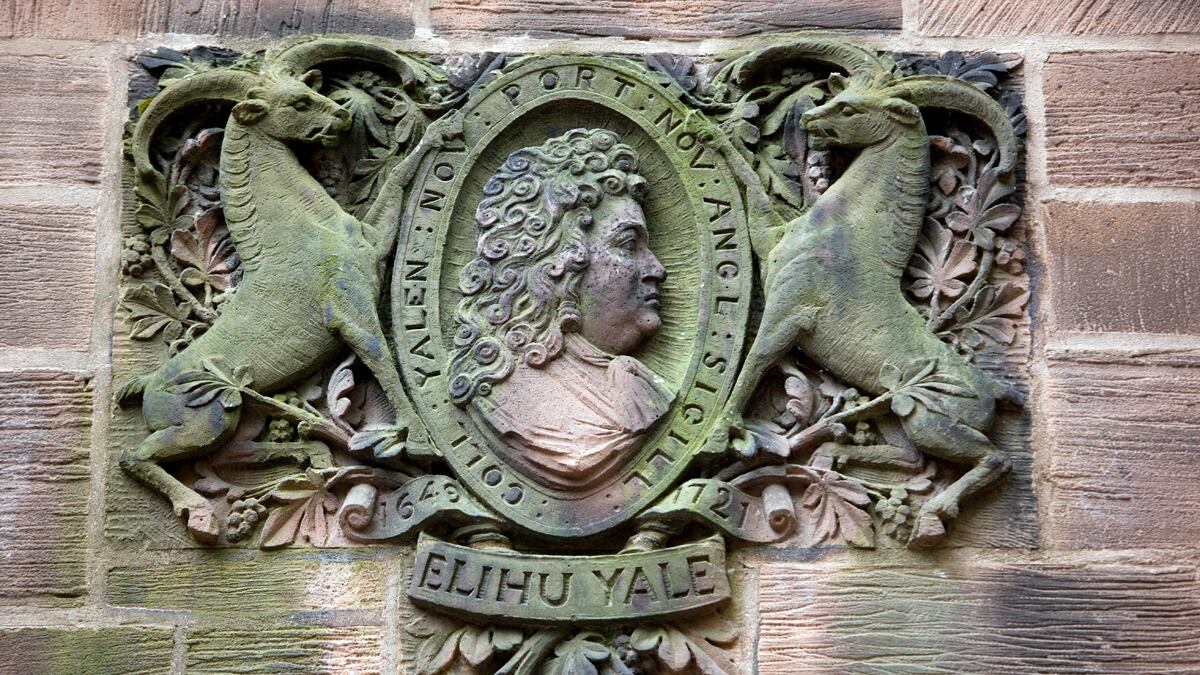The first thing you notice on a trip to Singapore isn’t what the city-state’s critics might like you to see: the professor who can’t profess, the student who can’t protest, the waiter who can’t unionize, the bleached-white detention centers.
It’s the food—delicious. You can eat anything in Singapore: curry zestier than Delhi’s, pork sweeter and sourer than Szechuan’s, and, in its Americana-themed steakhouses, a solid sirloin.
All this—and the artificial beaches, the waterparks, the carnivalesque mega-malls, the prostitution towers—cater directly to the market island’s international clientele. Most are multinational banks or consultancies, sticking a foot in Asia’s doorway.
But in September 2010, the People’s Action Party (PAP), Singapore’s ruling autocracy, scored a new client: Yale University. The Ivy League school is launching a new campus, to open next August, partnered with the National University of Singapore. “Yale-NUS,” the Yale administration says, will be a radical experiment in liberal education, a blended, Asia-fied academy for a globalized century. As Yale president Richard Levin said in his inaugural announcement, the school will educate leaders “who understand and appreciate differences across cultures and national boundaries.” It will also be a savvy way of extending the Yale moniker eastward, where the school’s brand recognition is far weaker. Even better, the PAP will pay for every penny.
The only problem: Nobody asked Yale’s faculty, or its students, about the venture.

A few started asking questions: Doesn’t the PAP ban books, jail professors, censor newspapers, prohibit protests, and torture small-time criminals?
In late March, several professors and student writers began complaining to the press. “It’s obviously a bad idea,” said political-science lecturer Mark Oppenheimer. “It puts Yale in the position of administering a campus that’s not 100 percent politically and intellectually free, and that subverts Yale’s values.”
(Disclosure: I graduated from Yale in 2012. While an editor at the Yale Daily News, I was the principal author of two unsigned editorials that labeled the venture “profoundly irresponsible.”)
Levin immediately reassured critics that “academic freedom” would be “guaranteed” at Yale-NUS. The PAP would be a perfect partner, the administration argued, better than India, Indonesia, or Vietnam. Singapore is a growing corporate mecca with a cosmopolitan bureaucracy.
But this week, the debate over Yale-NUS reignited when the franchise’s new president, Yale English professor Pericles Lewis, said in an interview that the new campus plans to nix political protest in order to comply with Singaporean law.
“We won’t have partisan politics or be forming political parties on campus,” Lewis told The Wall Street Journal. “In terms of organized protests heading off campus, they would have to obey Singaporean laws.”
In the wake of Lewis’s comments, faculty and students have voiced public outrage, while the administration has issued multiple statements in defense of the venture.
Human-rights groups are also speaking up. “Yale is betraying the spirit of the university,” said Phil Robertson, deputy Asia director of Human Rights Watch. “Instead of defending these rights, Yale buckled when faced with Singapore’s draconian laws.”
The college’s dean-designate, Yale astronomy professor Charles Bailyn, told The Daily Beast that the debate over the protest ban is “premature.” “We haven’t formulated any specific internal policies on student groups,” said Bailyn, who is leading workshops this week filled with faculty members of the new university, which broke ground July 6.
The venture’s backers—the administration and several key faculty members—have repeatedly argued that Yale could help liberalize Singapore. Now critics say that the opposite is happening, and that Singapore is infecting Yale with illiberal prohibitions on speech and assembly.
At a May press conference in Singapore, Lewis—announcing his appointment to the Yale-NUS presidency—argued, “Things are changing here rapidly, and a lot of people in the U.S. have a sense of it only from old newspaper reports.”
In an open letter to Lewis, Chee Soon Juan, secretary-general of the Singapore Democratic Party, wrote: “I agree. Unfortunately, it's for the worse. While it was perfectly legal for less than five persons to conduct a protest in the past, the Singapore government introduced the Public Order Act in 2009 to outlaw even one person from protesting.”
He added: “It seems now that instead of Yale opening up the minds of Singaporeans, it is the Singaporean government that will close the minds of the people running the college.”
Juan, the leader of the country’s liberal opposition, has been arrested and jailed multiple times for running afoul of the Public Order Act.
In 2002 he was fined for giving speeches in public without a permit. In 2006 he was forced to declare bankruptcy after being successfully sued for defamation by two PAP officials. Juan had asked former PAP prime minister Goh Chok Tong to account for a $10 billion government loan he approved for former Indonesian dictator Suharto.
In June of that year, Juan was convicted of eight counts of “speaking in public without a license,” a violation of the country’s Meeting Act. Bankrupt and unable to pay the fine, he was jailed for five weeks.
Levin did not respond to requests for comment, but released a statement saying: “Yale entered its partnership with the National University of Singapore in full awareness that national laws concerning freedom of expression would place constraints on the civic and political behavior of students and faculty.”
In a statement July 19 clarifying his own remarks in The Wall Street Journal, Pericles Lewis said: “Yale-NUS College is committed to academic freedom and open inquiry,” but “any college must obey the laws of the countries where it operates.”
Lewis did not respond to requests for comment.
None of the administration’s responses have yet specified what kind of political speech will pass muster under the PAP. But American students who have previously studied at NUS say that Lewis’s initial comment accurately characterized the situation.
“Public protest writ large is effectively a no-go,” said Walker Vincoli, who spent several semesters studying at NUS through a joint-degree program with the University of North Carolina. Last January, Vincoli wrote a column for the Yale Daily News detailing self-censorship and protest restrictions on campus. “As for political groups,” he told The Daily Beast, students at Yale-NUS can expect “heavy restrictions.” In particular, the law requires that all “political associations” register themselves under Singapore’s “Societies Act”—which gives the government power to dissolve them at will.
Yale teachers and students who have fought the franchising venture from the start said they anticipated this long ago.
“This is just the kind of problem that some of us critics have been predicting, and more difficulties like this no doubt lie ahead,” said Christopher Miller, a professor of French and African studies and an early opponent of the venture.
Political philosophy professor Seyla Benhabib, another early opponent of the venture, told The Daily Beast, “Yale is losing its good name—and for what exactly?”
In April, Benhabib spearheaded a faculty resolution expressing concern over “the history of lack of respect for civil and political rights in the state of Singapore.” After two hours of debate, Levin spoke up. “The tone of the resolution carried a sense of moral superiority,” he said. The resolution was approved; though no exact vote was released, professors told the Yale Daily News that it had been about 110 to 70.
Yale-NUS’s defenders include Yale trustee Fareed Zakaria, a writer, television commentator, and former editor of Newsweek International, who in April accused the venture’s opponents of “parochialism bordering on chauvinism.” Yale should learn from the city-state, he and others have argued, not condemn it.
Koh Choon Hwee, a Singaporean journalist for The Kent Ridge Common, an independent student review, wrote in March that critics of Yale-NUS were relying on “simplistic, stock authoritarian-Asian regime stereotypes” and that they “appear to see the world only through the blinkers of their prejudices.” She and other Singaporean students argue that Yale-NUS’s opponents overstate the degree of censorship in Singapore’s colleges, and that their criticism rings of neo-colonial condescension.
The “youth-wing leaders of opposition parties” are well known on campus, Hwee wrote, and “online student newspapers … are brimming with critiques of the university administration and of the country’s political system and politicians.”
Still, you don’t have to look far to find examples of criticism that was not so well received.
In September 2008 Gopalan Neir, an American citizen, was imprisoned for three months for “insulting a public servant” after blogging that a judge had “prostituted herself” to the ruling party. Neir was convicted under the Sedition Act, a colonial-era law that criminalizes any act that “excite[s] disaffection” against the government.
On November 2, 2010, British author Alan Shadrake, a critic of the country’s judicial system, was sentenced to six weeks in prison after being convicted of “criminal defamation.”
Last April, a panel of Singaporean students and alumni visited New Haven to defend the Yale-NUS venture. The event was titled “Singapore Uncensored,” but no recording was permitted, and members of the press were told they could not quote speakers directly.
When a professor of politics, Jim Sleeper, asked if the panelists had themselves recorded the session, they said they had. They denied that the recording would be shared with authorities in Singapore, but one of the panel's lead members also responded, "We're not saying there's no censorship in Singapore, professor!"
To some, there is a certain irony in the controversy: Yale, after all, has a longstanding history of protecting political protest.
From the late 1980s to 2011, for example, the university refused to allow the Reserve Officer Training Corps on campus until the repeal of "Don’t Ask, Don’t Tell," which banned gays from serving in the armed forces. Professor Miller, who is gay, first opposed the Yale-NUS venture on similar grounds: Singapore’s formal homosexuality prohibition. That ban remains on the books, though it is inconsistently enforced.
And Yale’s "1975 Woodward Report on Free Expression," written in the wake of campus draft-card protests and Black Panther trials, set a much-imitated standard for college-speech codes. It was written while Yale’s president, Kingman Brewster, came under assault for his vocal criticism of the Nixon administration, and guarantees a campus that “tolerates” “the provocative, the disturbing, and the unorthodox.”
In some ways, Yale is keeping its distance from the new venture. According to a university spokeswoman, Yale-NUS students will not receive Yale degrees. "Yale-NUS students are not Yale students. They are students of Yale-NUS,” said Karen Peart, Yale’s associate press secretary.
One might expect the Yale administration and a regime like the PAP would have little to agree on. But financial connections between the two already exist. Two members of Yale’s board of trustees have or have had significant business with the Singaporean government. Charles Goodyear was CEO-designate of Singaporean investment company Temasek Holdings. And G. Leonard Baker served as an adviser to the NUS Investment Committee. On Saturday, Baker and Goodyear had not yet returned requests for comment.
In a statement last April, President Levin said Goodyear was not part of the Yale corporation when the new campus was discussed, and that Baker recused himself from voting on the proposal. The specific financial and contractual terms of the Yale-NUS agreement have not been made public.
At this point, it’s hard to say what speech will be free at Yale’s new Asian franchise. According to their statements this week, the venture’s backers believe that time will tell, and that the benefits will outweigh the costs. But alongside all the old questions, the recent outcry raises new ones.
Would a Yale-NUS student or teacher be allowed to invite a political dissident like Chee Soon Juan to campus? Currently, the answer is no. He has been barred twice from speaking there, he says.
And how would the Yale administration respond if a group of students at its new campus were jailed for protesting without a permit? The answer is unclear.






